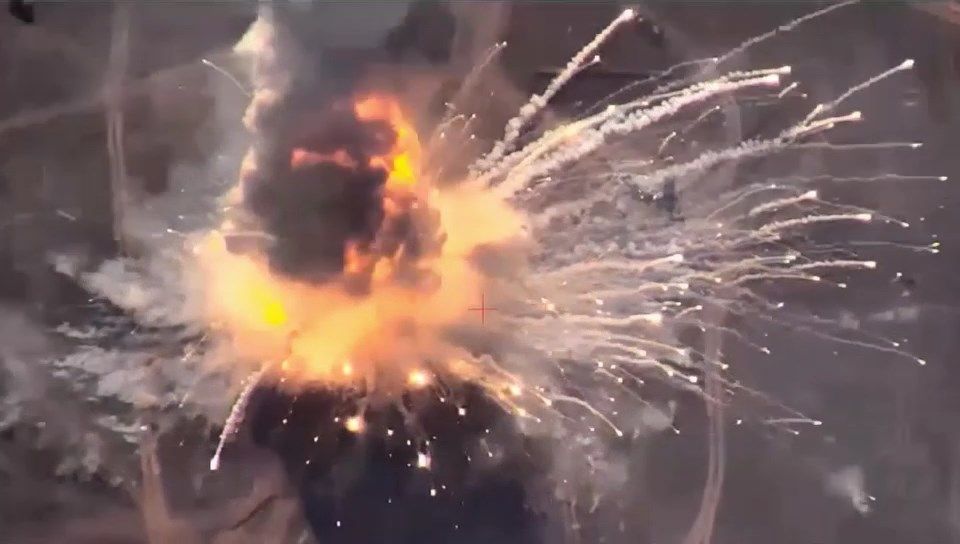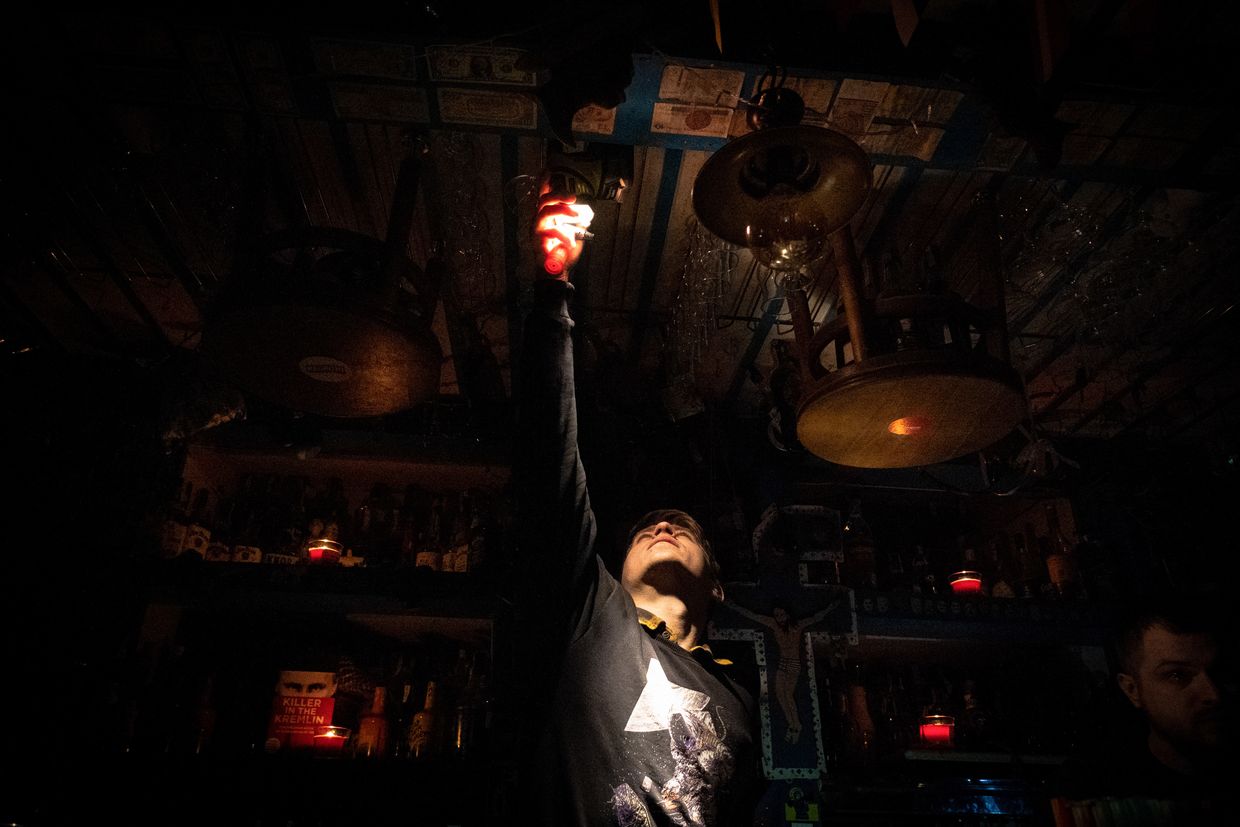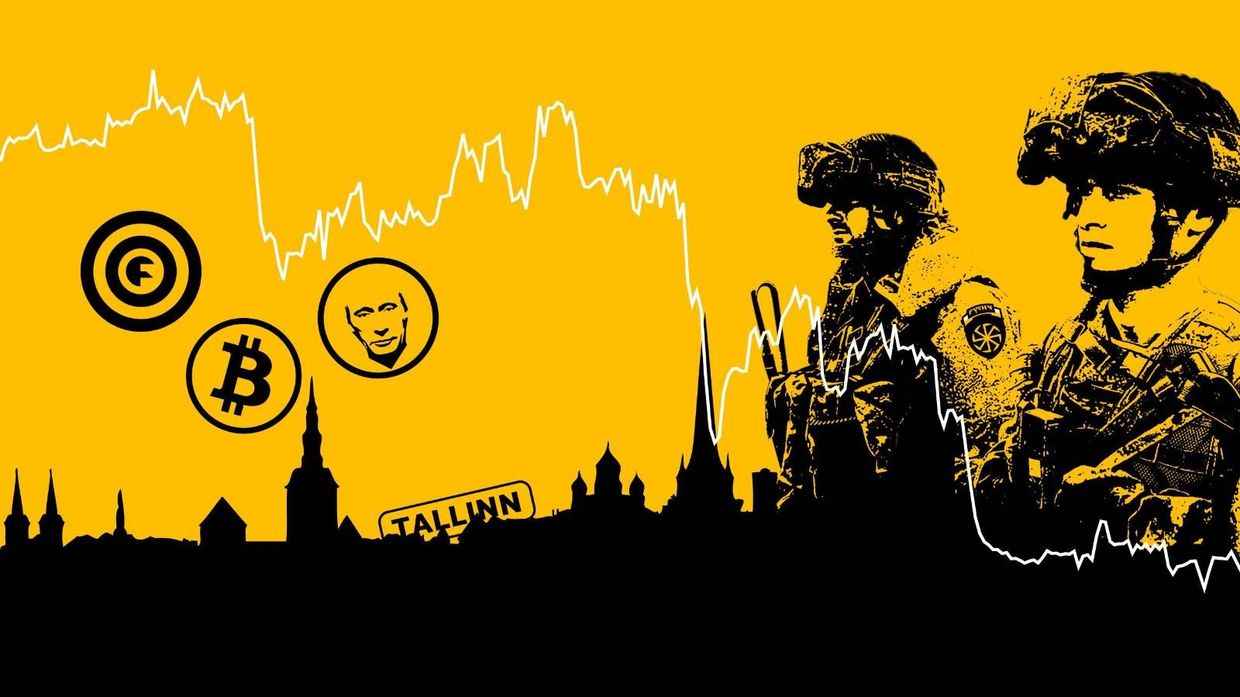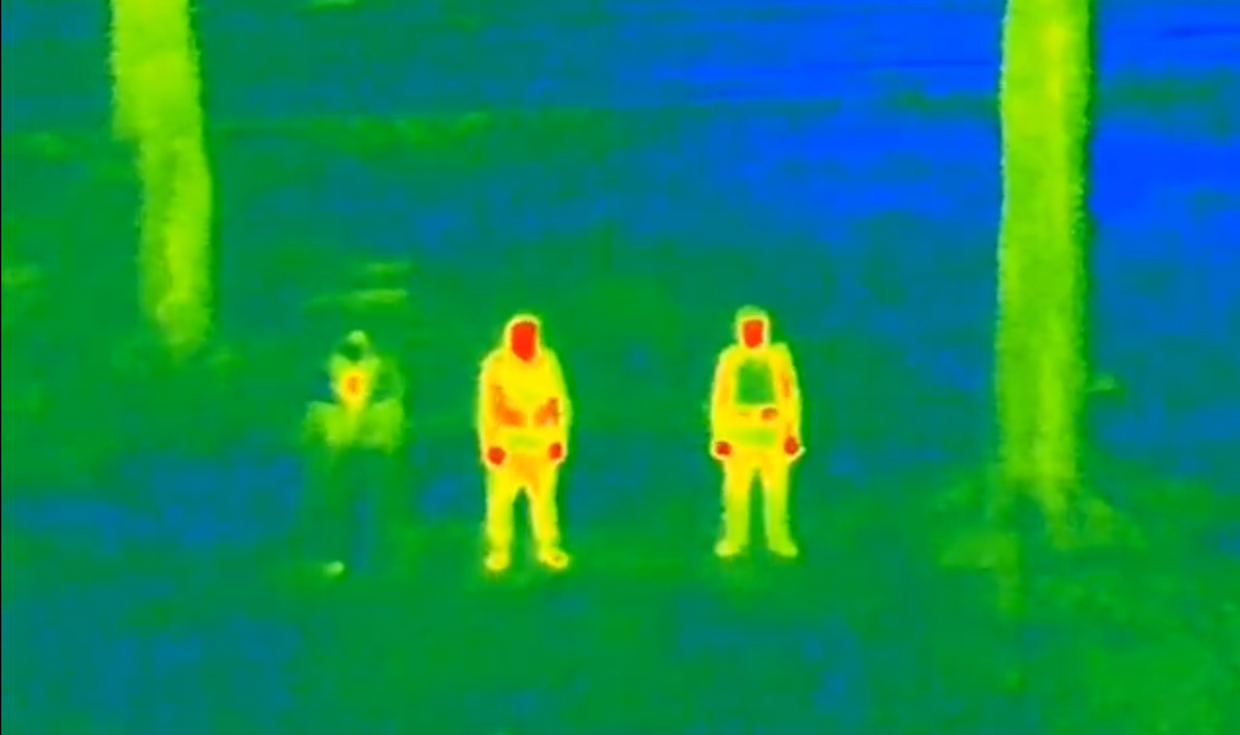Ukraine war latest: Kyiv says special forces conduct operation in occupied Crimea

Key developments on Oct. 4:
- Military intelligence: Special forces land in Crimea in military operation
- Media: SBU drones hit Russian S-400 air defense system near Russia's Belgorod
- NATO official: Ukraine's allies running out of ammunition, production must increase
- Lithuania opens transit corridor for Ukrainian grain
- UN report officially rejects Russian claim that HIMARS caused Olenivka prison explosions
Ukrainian special forces landed in Russian-occupied Crimea and conducted a combat operation, Ukraine's military intelligence agency (HUR) announced via a video published online on Oct. 4.
The video shows special forces using boats to land on a beach at night, where they unfurl a Ukrainian flag with the HUR emblem.
The operation involved a battle with Russian forces, who suffered significant losses, and Ukrainian forces have already returned from the operation, Ukrainian media outlet Hromadske reported, citing a HUR source.
"Unfortunately, there are losses among Ukrainian forces" as well, though not on the scale of on the Russian side, HUR spokesperson Andriy Yusov told Ukrainian online newspaper Ukrainska Pravda.
"The special operation aimed at the liberation of Crimea continues," he added.
When or exactly where the operation took place was not made public.
Since the summer, there have been increasingly damaging attacks on Russian military targets across the peninsula, which has been occupied by Russia since 2014.
One key target has been the Black Sea Fleet, which is currently based in occupied Crimea. The fleet has suffered a series of major attacks over the past weeks, including strikes on a command post on Sept. 20 and on its headquarters on Sept. 22.
HUR previously announced that Ukrainian forces landed in Russian-occupied Crimea, raised the Ukrainian flag, and engaged in combat with Russian forces on Aug. 24.
The choice to conduct the operation was notable as it was the same day as Ukraine's 32nd Independence Day.
Media: SBU drones hit Russian S-400 air defense system near Russia's Belgorod
Drones of the Security Service of Ukraine (SBU) hit a Russian S-400 Triumph air defense system near the Russian city of Belgorod, several Ukrainian media outlets reported on Oct. 4, citing sources in the SBU.
The strike was reportedly carried out at night. In videos on Russian Telegram channels, allegedly taken in Belgorod and published in the early hours of Oct. 4, the sounds of explosions can be heard over the city.
The SBU sources did not elaborate on the extent of damage done to the air defense system.
Russia claimed that its forces shot down 31 Ukrainian drones overnight over Belgorod, Bryansk, and Kursk oblasts.
Vyacheslav Gladkov, the governor of Belgorod Oblast, reported that three aerial targets were downed over the Grayvoron district, resulting in damage to civilian infrastructure.
This is not the first reported attack by the SBU against a modern S-400 system worth around $1.2 billion.
Another such system was allegedly destroyed in Yevpatoriia in Crimea on Sept. 14 in a joint operation by the SBU and the Ukrainian Navy.
On Aug. 23, the Ukrainian military reported that yet another S-400 system had been destroyed near the village of Olenivka on Cape Tarkhankut in the occupied peninsula.
NATO official: Ukraine's allies running out of ammunition, production must increase
Kyiv's allies are running out of ammunition stockpiles they can supply to Ukraine, Chair of the NATO Military Committee Admiral Rob Bauer said at the Warsaw Security Forum on Oct. 3, CNN reported.
"The bottom of the barrel is now visible," the official said.
"We need the industry to ramp up production in a much higher tempo."
According to The Telegraph, the U.K. has already run out of weapons equipment it can donate to Ukraine. A senior British military official cited by the news outlet urged other countries to step up their support instead.
U.K. Minister of State for the Armed Forces James Heappey, speaking at the same panel as Bauer, admitted that British supplies "are looking a bit thin" but added that this does not mean the aid flow would stop.
"We have to keep Ukraine in the fight tonight and tomorrow and the day after and the day after. And if we stop, that doesn't mean that (Russian President Vladimir) Putin automatically stops," Heappey said.
The Pentagon has also warned U.S. Congress that it is running low on money to replace the arms the U.S. has sent to Ukraine and has been forced to slow down the resupplying of some American troops, the Associated Press reported.
Ukraine aid funding has become a focal point of a legislative fight among U.S. lawmakers, which resulted in the ousting of Republican House Speaker Kevin McCarthy on Oct. 3.
Representative Matt Gaetz, part of a group of far-right conservatives in the Republican Party who oppose increased military aid to Ukraine, brought forth the motion to oust McCarthy as speaker.
Gaetz claimed that McCarthy made a secret deal with the White House and the Democrats to pass a short-term funding bill for Ukraine.
Lithuania opens transit corridor for Ukrainian grain
Lithuania opened a corridor for Ukrainian grain transit to the Baltic ports, Lithuanian Foreign Minister Gabrielius Landsbergis said on Oct. 3.
"Russia destroys food, Lithuania delivers it," the minister wrote on the social platform X.
"A corridor for grain transit to Baltic ports has been accepted and agreed upon, relieving pressure at the Ukrainian border and increasing supply to Africa and beyond."
On Oct. 3, Ukraine's Agriculture Minister Mykola Solskyi said that Ukrainian agricultural cargo headed for the Lithuanian port of Klaipeda would be checked directly at the port instead of at the Polish border to speed up the transit.
Ukraine has been seeking alternative routes for its grain exports following Russia's unilateral withdrawal from the Black Sea Grain Initiative in July.
As one of the world's leading grain producers, Ukraine's supplies play a major role in feeding countries around the globe, namely in the Global South.
The EU's solidarity corridors, instituted in May 2022, play a major role in shipping out Ukrainian produce, facilitating the transit of over 45 million metric tons of agricultural products.
Other countries have also agreed to aid Ukraine in transporting its grain. Croatia made its ports available to Ukrainian exports, and Romania agreed to expand its transport infrastructure, hoping to transit 60% of all of Ukraine's produce.
UN report officially rejects Russian claim that HIMARS caused Olenivka prison explosions
The UN High Commissioner for Human Rights (OHCHR) categorically dismissed Russia's claim that the Olenivka prison massacre was caused by a Ukrainian HIMARS rocket in a new report released on Oct. 4.
Between July 28- 29, 2022, an explosion at a prison in Russian-occupied Olenivka, Donetsk Oblast killed over 50 Ukrainian prisoners and injured 75 more.
Ukrainian authorities said that days before the attack, Russians singled out Ukrainian members of the Azov Regiment, who were captured in Mariupol and were awaiting a prisoner exchange, to a separate part of the prison building – the one that was destroyed.
According to Kyiv, Russia either hit the prison with artillery or blew it up from inside. Ukraine's Prosecutor General's Office said that Russia likely used a thermobaric munition at the Olenivka prison.
Russia accused Ukraine of attacking the prison with HIMARS, a U.S.-made high-precision rocket system first delivered to Kyiv a month before the massacre.
The OHCHR's report definitively concluded that was not the case.
"The degree of damages to the walls, ceiling, roof and windows of the barracks, the condition of the bunk beds inside, the size of the residual crater, and the impact radius are not characteristic of impacts by HIMARS ammunition," the OHCHR wrote in the report.
The direction of the blast was also not consistent with the direction of the front lines at the time.
According to the report, Russia has not provided the UN with access to the site or other parts of occupied Ukraine.














